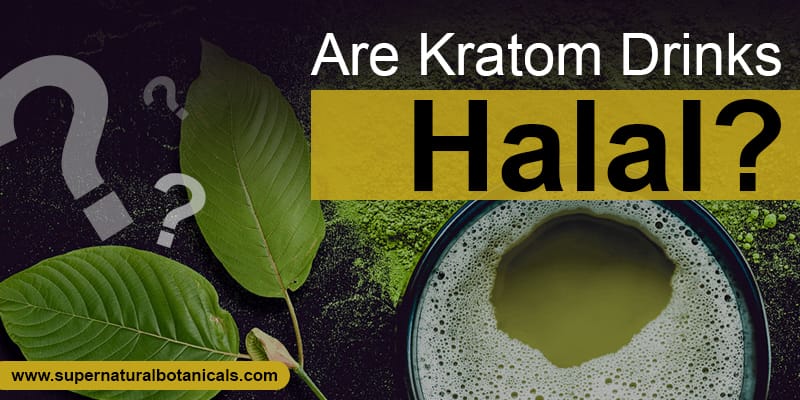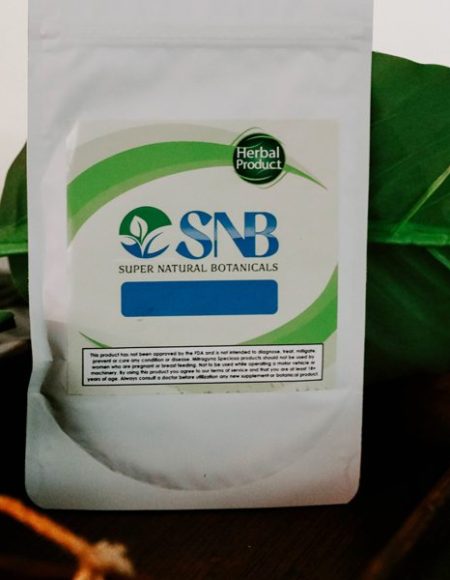Kratom, a tropical tree native to Southeast Asia, has emerged as a prominent figure in the wellness world. The same tree has been used for medicinal purposes for centuries, whether as a discomfort-relieving beverage or a relaxant. Today, crushed kratom leaves are used and consumed in various forms – teas, capsules, and even powders all around the world. Therefore, you would find Kratom products in nearly every store in the U.S. Yet, amidst the buzz and popularity, a crucial question lingers for many individuals:
Is Kratom Halal?
Kratom: The Rising Star With A Cloud of Uncertainty
Kratom’s rise to fame stems from its active alkaloids, particularly mitragynine. This compound interacts with the brain’s opioid receptors and potentially offers significant relief from discomfort similar to low-dose opioids. Furthermore, Kratom is renowned for boosting energy levels and uplifting mood. Some users have even reported that Kratom has proved to be effective in managing withdrawal symptoms from stronger drugs like opioids. This implies that Kratom has a strong potential as a harm-reduction tool.
However, the research on Kratom remains in its infancy. While anecdotal evidence abounds, large-scale clinical trials are still scarce and in need of more digging. This lack of robust scientific data makes it challenging to confirm Kratom’s benefits or potential side effects definitively.
On the same note, concerns regarding Kratom are not unfounded. In high doses, it can lead to nausea, constipation, and even hallucinations. Long-term use may cause dependence. This implies that no matter how “natural” the product is, there are dependency risks. Therefore, responsible consumption is crucial.
Given that Kratom poses little, but definitely some side effects upon its ingestion, regulatory bodies in some countries have even imposed restrictions due to safety concerns. However, in the United States, the use of Kratom is legal.
The Islamic Perspective on Kratom
If we explore more into the crux of the matter: the Islamic perspective on Kratom, understanding the concept of Halal and Haram becomes paramount.
Halal, meaning “permissible” in Arabic, encompasses all aspects of a Muslim’s life, including food, drink, and daily actions. On the other hand, Haram, meaning “forbidden,” is anything that’s considered unlawful — the opposite of Halal.
Exploring The Halal VS Haram Conundrum
In the light of consumption, any substance or food deemed to be harmful or intoxicating is considered Haram (forbidden). The Holy Book, the Quran, provides the foundation for determining Halal and Haram. While Kratom is not explicitly mentioned, Islamic scholars rely on broader principles to evaluate its permissibility.
One key principle is the concept of “avoiding harm” (sad az-zari’ah). If a substance poses a potential health risk, particularly in the absence of clear medical benefits, it might be categorized as Haram. Another consideration is the potential for intoxication (khamr).
Considering this, even though Kratom does not necessarily induce the same level of intoxication as alcohol, its psychoactive effects still raise questions.
The lack of scientific consensus on Kratom’s safety further complicates this matter. In the absence of definitive evidence proving its harmlessness, some scholars might lean towards caution and advise against its use, therefore, most religious individuals are against the use of any herb or substance that is outside the hospital and clinical practice.
Exploring the Gray Area Regarding Kratom Use
Given the limited research on Kratom, navigating its Halal status becomes a delicate issue. But here are some factors to consider when making an informed decision:
Dosage
As high doses of Kratom may lead to side effects and euphoric sensations (high doses of Kratom may lead to sedation), consuming low doses is less risky. Regardless of preference, an individual’s responsible use is crucial.
The Context Behind the Use
Consuming Kratom for legitimate discomfort relief or mood management might be viewed differently than recreational use — for sleep, pleasure, entertainment, or relaxation.
With that said, using any substance with the intention of feeling euphoric is strictly prohibited in Islam.
Medical Supervision
Consulting a qualified healthcare professional is vital, especially if one has underlying health conditions.
The Final Verdict: Is Kratom Halal?
In conclusion, the decision of whether Kratom is Halal rests with the individual Muslim, guided by their faith and understanding. Consulting a knowledgeable Imam or Islamic scholar familiar with current research on Kratom is highly recommended. They can provide personalized advice based on your circumstances and interpretations of Islamic principles.
Additional Considerations
Here are some additional points to ponder to guide you further:
- Alternative Solutions
For individuals who want to seek health benefits from herbs, using halal-approved discomfort management options might be a suitable alternative. These involve natural remedies like turmeric or clove oil, over-the-counter medications permissible within Islamic guidelines, and traditional Islamic medicine practices.
- The Precautionary Principle
Due to uncertainty and lack of evidence, some individuals opt for a more cautious approach and avoid anything potentially Haram. This principle, known as ihtiyat (precaution), emphasizes prioritizing safety and avoiding even the possibility of transgression.
A popular example is avoiding eating fish and dairy products together. While there is no evidence stating that these food combinations cannot be eaten together (there’s only one specific fish that shouldn’t be consumed with any dairy products), most people still avoid eating them together for the possibility of digestive issues. Again, the consumption of this food combination isn’t particularly haram or forbidden, people still practice ihtiyat.
- The Importance of Intention
Using Kratom with a sincere desire for well-being, not mere intoxication or sedation, might be considered by some scholars as a mitigating factor. However, anything beyond the use of medicine would raise many eyebrows.
FAQs About Kratom Use:
1. Can I consume Kratom if I’m Muslim?
There is no definitive answer to this question. The decision solely depends on your individual understanding of Halal and Haram. Since Kratom has psychoactive properties, its use leads to sedation and an intoxicated state, i.e., not permissible in Islam. Therefore, consulting an Imam or scholar is recommended.
2. What are some alternative pain management solutions for Muslims?
If you’re looking for all-natural remedies for chronic discomfort management, several Halal options exist for pain management. These include natural herbs like turmeric or clove oil, over-the-counter medications, and traditional Islamic medicine practices.

Sara is the owner/operator of Sara E. Teller Industries, LLC., and a freelance writer who has spent nearly twenty years in media. A seasoned publishing professional, she has worked for newspapers, magazines, and book publishers in content digitization, editorial, acquisitions, and intellectual property. Sara has an MBA degree and is currently pursuing an MA in Clinical Mental Health Counseling. In addition to her freelance work, she manages sarateller.com and has published three fiction and two self-help titles. She lives with her family of six in Michigan.

















